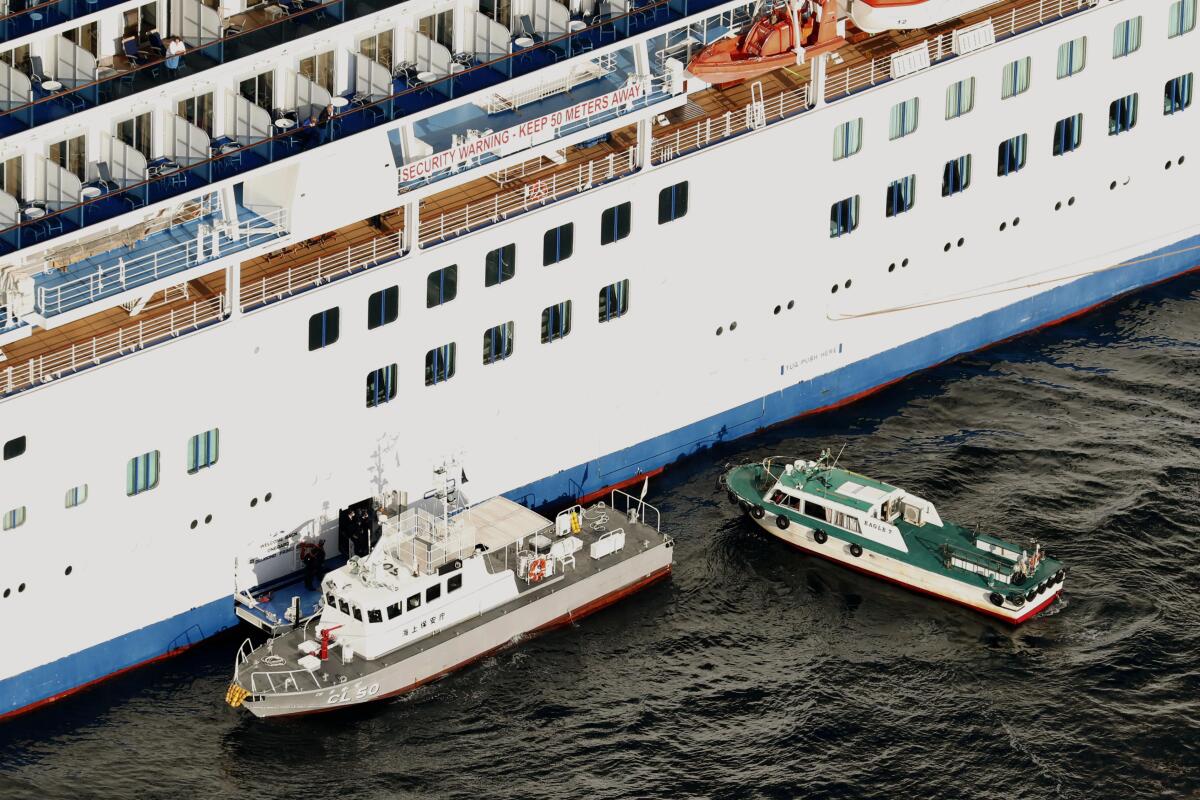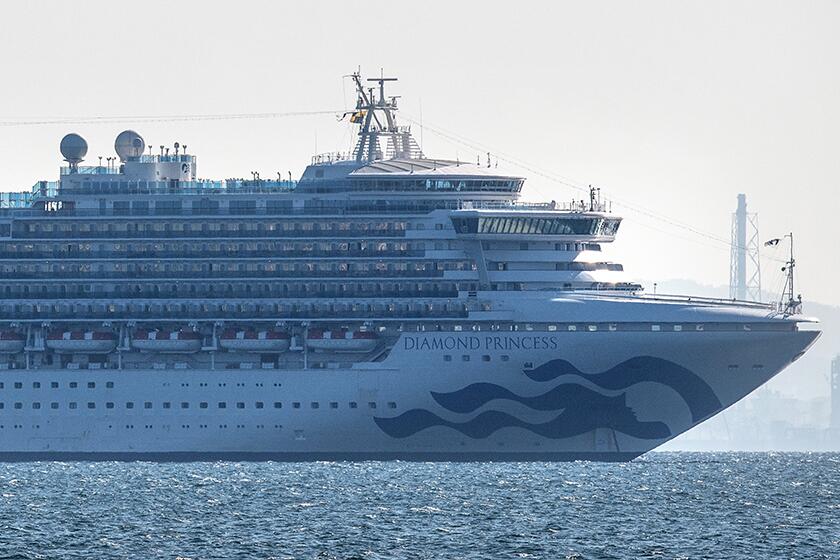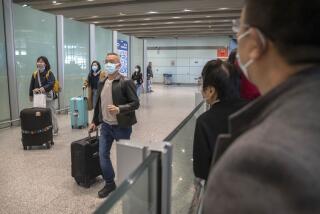Cruise ships’ coronavirus rules: You can’t board if you’ve recently been to China

In response to the coronavirus emergency, cruise ships will deny boarding to passengers of any nationality who have visited, or traveled from or through, China, including Hong Kong and Macao, within 14 days of their sailing date, the world’s largest cruise industry association announced Friday.
Cruise lines will also screen passengers before they board and conduct “enhanced screenings” for those who show symptoms of the deadly virus.
Passengers who have cared for or been in contact with anyone diagnosed with or suspected of having the virus in the last two weeks will be turned away too. This includes people who have been around anyone being monitored for possible exposure.
The Cruise Line International Assn., whose members operate 90% of the world’s oceangoing voyages, cited the health and safety of passengers and crew members as the reason for the new protocols, which go into effect Friday. They beef up earlier rules issued Jan. 30.
“These enhanced policies ... continue to allow for informed decisions on a case-by-case basis whether a guest or crew member will be permitted to board,” the association said in a statement.
As for potential refunds to passengers barred from boarding, the CLIA directed travelers to contact their cruise line or travel agent to find out about possible compensation.
The announcement comes a day after the number of coronavirus cases aboard the Diamond Princess cruise ship climbed to 61 while it has been quarantined off Yokohama, Japan, since Monday. About 3,700 passengers and crew are on board. Passengers began their journey Jan. 20 at Yokohama and were supposed to have ended their trip Feb. 4.
The Diamond Princess is off Yokohama, Japan, with about 3,700 passengers and crew.
Cruise line association members include Celebrity Cruises, Carnival Cruise Line, Disney Cruise Line, Princess Cruises and others.
The number of cases of people infected with the virus, officially identified as the 2019-novel coronavirus, has risen to more than 31,400 worldwide. The death toll in China was set at 636 as of late Thursday. It was first detected in Wuhan, China, but has now spread to other parts of the world, including 12 cases the U.S.
The World Health Organization last week declared the coronavirus outbreak to be a global health emergency. The U.S. State Department has issued its highest Level 4 travel advisory, telling Americans “do not go” to China because of the health risk.
More to Read
Sign up for The Wild
We’ll help you find the best places to hike, bike and run, as well as the perfect silent spots for meditation and yoga.
You may occasionally receive promotional content from the Los Angeles Times.








